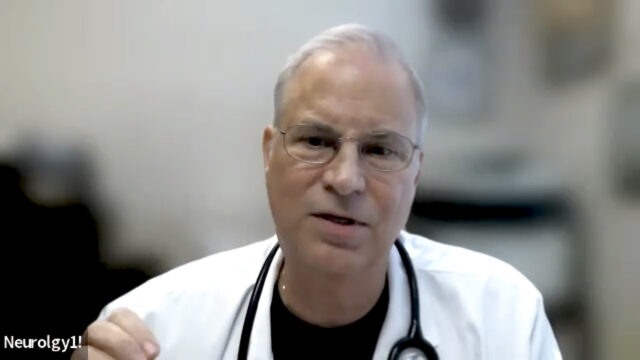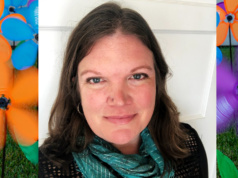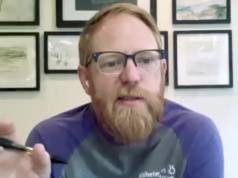Welcome back to Answers for Elders Radio Network. And I am here with Dr Paul Winner, and he is the Senior Director of the Premier Research Institute and the directory of the Memory Disorder Center. And Dr Winner, you have been so amazing. We’ve spent an hour so far. We’ve got one more segment to go, talking about breakthroughs, Alzheimer’s disease, clinical trials, how we are now able to diagnose so much more and treat so much more. I don’t know when I have felt more optimistic than ever about a cure for this disease. You just made my day today so far.
– Well, thank you. It’s a pleasure. We’ve been through research for a very long time here at Premier Research Institute as part of Palm Beach Neurology. Most of our patients and research are actually the patients from our practice. We’ve been doing the best we can to try to help them. It has been hard. It has not been easy for many years. But things have changed. About three years ago, we started to get a much better understanding of this illness. We had some of the right medicines, the monoclonal antibodies to remove amyloid. We just didn’t have the right dose, and we were studying them for too short a period of time, because we didn’t understand the disease and what was happening. That has changed. We now understand to use the higher doses. We have a better handle on determining what side effects will occur in what patients. So we have bio markers that let us know: this is an Alzheimer’s patient, this is a patient who has this genetic profile, this is the right study for them, this is the right monoclonal for them, because we already know the paradigms. We didn’t know that many years ago, but we do know that now, and now we’re seeing that we need a little more time. Patients have to give us a little more time. The medicines are working, but many of them take a year, two years, to really show that clinical response that we want to see. So that’s very important, and that’s part of learning and educating. But probably the most important thing to take away is that it’s not just one or two medicines anymore. We have five different classes of medicines, two others under study as well. What I’m saying is it isn’t going to be one medicine. It isn’t going to be one class of medicine. We are going to use multiple medicines depending on the situation.
Patients who are very very very early, we’ve diagnosed essentially using biomarkers and the early risk factors, we can basically treat them probably with one, maybe two medicines. Patients who present with mild cognitive impairment, two or three, depending on the situation. People with early or mild Alzheimer’s, maybe three or four. With moderate outsigns more advanced, we may have to use everything we’ve got to do it, to get ahold of this. Because we can now pull out the toxic amyloid, pull out the toxic tau. We can stop the progression of essentially the formation of the amyloid. Some individuals, we still have to work on that, we can uncoil, or it looks like we can uncoil, some of the amyloid, and others, so we’re gonna pick this menu.
We’re also seeing some medicines were used for diabetes seem to be somewhat neuro-protective, so that’s very interesting, that that could also play a role. You don’t have to have diabetes for these studies. We’re actually seeing in non-diabetics as well as diabetics. We have two different studies, to see whether we use that, can we also be neuroprotective? But a very exciting new targeted therapy has also been under study now for a few years in our site. It’s called Athira 1017 or FOSCO. This molecule actually binds through a met receptor system to do three key things. It is neuro-protective. One of the things we’ve already seen. It decreases inflammation, a very important point of fighting this illness, to stop progression. And it does something else. It helps the nerve cell to communicate with other nerve cells, neurogenesis, somato sensory genesis. So what we see is increased connections between nerve cells, and that’s very important for what we consider improvement and ultimately recovery. So all these things are very optimistic, but they’re early.
Now the ACT study is done. We’ve done the first six months of the study, and then people are an open label now. The majority of patients have moved to open label, and we’re very optimistic. Some of the initial data has given us very optimistic data to show that less nerve cell damage, even in that short period of time, was seen with this molecule. So these are the things we’re looking for and these are the very hopeful signs in the research that we have now. But people have to understand we’re going to have to use a menu of medications depending on the situation.
But the very first thing you have to do is get diagnosed correctly. So if there’s any history in your family of dementia, even if it wasn’t diagnosed as Alzheimer’s, you need to be evaluated, if you’re 50 or older, because that’s where most of our studies start, we may even go younger than that. Definitely by 60 you need to start to be evaluated to see if you have those risk factors in your family. If you’re not, and your family’s lived to 105 and no one’s ever had dementia, you may not be at risk. Still not a bad idea, though,at least by 60 or 65, to start getting an occasional neuro-behavioral assessment. Get a baseline of where your cognitive function is. Get a baseline of how your brain is working. We have something called an EVOX. It’s a very easy machine. It’s a much more sophisticated machine than an EEG. It gives us processing speed, information on EEG function, and we can get a kind of a brain mapping kind of concept. We get an idea of where the brain is that day, made it to the cognitive issues, to your history and physical exam. Very nice baseline. That’s started to be done now and everyone at risk, but even not at risk, because we don’t want anyone to get this illness, to progress or slow progression. It’s called disease modified therapy. That’s what we have. We do not have disease stop. What we have is disease modification. You need to get people diagnosed early and into the system so they can get the best possible outcomes.
– So I’m just wondering what this new research. I can envision that this cognitive test should probably happen on everyone once they turn 50, like a blood work when you go to a doctor. Do you envision that happening in the future?
– Without a doubt. It’s going to be like we do with cardiology for cholesterol. We’re gonna check if you have amyloid. And basically I alluded to this in an earlier segment. We have very good serum bio markers. They’re not quite as good as a pet scan for amyloid, but they’re close. They’re a little expensive and hard to do right now, because we don’t have enough machines in the country. But once we, you know, basically get to that point, they shouldn’t be as expensive, and they can be used as a screen. But you can’t just use a biomarker. A bio market tells you it’s there, and just amyloid alone doesn’t say you have Alzheimer’s. If you don’t have amyloid, you really can’t have Alzheimers. But if you do have amyloid, it just says you have amyloid. Now you have to go further and prove, is it just a small amount, because a lot of us have a little bit. Is it pathologic? Is it another entity? There are diseases with just amyloid alone. So that’s the start, getting an accurate diagnosis. So no amyloid, you don’t have Alzheimer’s. Present, doesn’t mean you have Alzheimer’s yet, doesn’t mean it’s gonna be bad yet, but you do have to follow up. You can’t just forget about that, because we can take it out and get you better if it is something significant.
– Right. By participating in a clinical trial like this, you’re getting the state of the art treatment with you. But more importantly, there’s gonna be things they’re going to discover about you with these advanced tests and things like that that you’re not going to get in regular treatment. Is that correct?
– Right now, the most advanced evaluations and the most advanced treatments are inside the research. We are still recruiting for this new targeted Athira 1017, the FOSCO, we still have some recruitment going on. We’re pretty close to finish, and it’s basically called the Lift or 201, so we are still recruiting for that. But we’re also recruiting for many of the other studies as well. But yes, you’re right. Right now, all these bio market tests, different ones are done for different reasons. Many of them, you get a PET scan or a tau scan, some of you get both, some of you get the whole thing, some, you just get segments that are needed, to prove whether the medicine is working or not working. All of them have neuro-behavioral testing done serially throughout, to see how you’re clinically doing, and that’s it’s important about the bio markers. We need them to know what we’re doing treatment-wise. But what’s more important than anything: how you’re doing, and we can monitor that. How are you doing with your family, how is the caregiver doing? You can’t just use medicine alone as well. You still have to do exercise, you still have to do diet, you still have to control the blood pressure, it’s like any chronic illness. This is a neuro-degenerative disease, a chronic illness that has to be fought at every single level, and you have to support the caregiver, the family, and you have to obviously keep the patient is number one.
– Yes, And as a caregiver, I remember taking care of my mom, and the greatest support network I had were the people that cared for her. They helped me understand and there were times that I wanted to be so accurate and if she gave the wrong answer to a question, I’d want to jump in and correct her. There was such a weight off my shoulder when a health care professional came to me one day and said, Suzanne, guess what, the truth is pretty much irrelevant in this case. In other words, we know, we know what’s going on with your mom. It’s okay, and you don’t have to do that. And it gave me permission to be the daughter, to be the person that just helps them to support them. And I think that was the true opportunity that I had, by participating in programs similar to this, and I am such an advocate too for these types of trials. And I hope like crazy that if anyone is listening, listen to Dr Winner and we’re going to give his information at the end of the segment. But I also want to mention to each and every one of you about Athira Pharma. They do have some openings with their trial for mid to moderate Alzheimer’s.
– These people they’re clearly clinically showing the illness. There’s no question something’s wrong.
– And you can visit https://www.lift-adtrial.com/ for more information. And in the meantime, Dr Winner, how do we reach you?
– The easiest way is to call me at (561) 851-9400. Or reach us through our website Premier Research Institute at https://premiereresearchinstitute.com/.
– It has been such a joy to have you with us on this amazing topic. You and you totally made my day. I want you to know I have never felt more optimistic about something that has always been grim, that we deal with each and every day in my work. And um, I am so grateful you took the time. So thank you so much for today. And to each and every one of you, that wraps up our segments with Dr Winner. And again, if you’re interested in participating in the LIFT trial according to Athira Farmer, that is https://www.lift-adtrial.com/. And we’re looking forward to having you back, hopefully someday soon. Dr Winner. I’d love to have you back.
– It would be my pleasure. Thank you.
– Those of you that are listening, thank you so much for sharing this hour with us and talking about the promises that are happening with Alzheimer’s disease and with all types of dementias, and also how we can help your family navigate this very complicated journey. So until next week, everyone, be good to each other.











